May
19
TOUCHED BY COURAGE
Filed Under Brain Injury, Combat PTSD, Events, Family, Giving, Life, Love, PTSD, TBI & PTSD, Tears of a Warrior, Trauma, Veterans, Wisdom | Comments Off on TOUCHED BY COURAGE
by Janet J. Seahorn, Ph.D
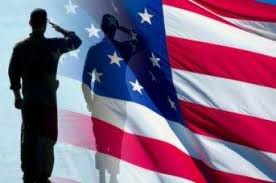
A few weeks ago, Tony and I spent several days in the Grand Strand area of Myrtle Beach, South Carolina.
It was Military Appreciation Week.
Due to the special invitation of Retired Army Officer Sinclair Swan, we had the privilege of working with two local groups of military veterans, their spouses and family members.
During the day we met with several group members and their spouses. It was an amazing opportunity to not just speak to the individuals in attendance, but to listen and hear their stories as well. Each account reminded us of the enormous amount of courage it takes to get up each day, live it as best one can, and give back to others.
Two of the veterans have adult children who experienced traumatic car accidents which left them with severe head injuries. These vets are now the primary care givers. Not only have they endured their own trauma; now they must bear the suffering of their children. Several are challenged by serious health issues for them and/or their spouses.
Yet, they continue with great effort and fortitude to move forward. It is a humbling gift to have others shares their trauma and heartbreaks.
Contrary to some public perspective, most of these vets have lived and are living successful and productive lives. In spite of their demons, they have deliberately chosen to not let the past destroy the future. They have elected to make a difference for themselves, their families, their communities. Sinclair Swan meets every Saturday with vets who need help in filling out government forms to obtain services. Each has made significant contributions to serving others.
One individual wrote a special poem many years ago. Upon returning from Vietnam he described how he became homeless, sleeping in parks, and getting his “fixes” when needed. Then, one day, another homeless friend suggested they go to a church soup kitchen for a meal. It was there that a miracle occurred and his life changed. He got his faith back, his spirit, and eventually his life. At that time he wrote a poem which he has allowed us to share with you.
A Poem
By William Huffaker
If I only had one wish to make,
but that wish would surely come true.
I’d wish that I would be given the light
to turn the darkest sky into blue.
Now to you this may sound
like my mythical dreams
have blurred my vision
so that this only seems
to be an illusion
of hopeful abound,
and that my wish
I’ve not really found.
But I’ve found it I tell you.
As I’ve sought it in truth.
And I know now this answers’
been here since my youth.
But I just couldn’t see
through the clouds in my mind.
Through delusions of grandeur
I just couldn’t find.
This fabulous dream
that just had to be,
waiting and knowing,
someday that I’d see.
And even though skies
still sometimes turn black.
And visions of grandeur
still sometimes come back.
I know that there’s light
in the darkest of night.
And the tenderest loves
never far from my sight.
And now that my dream
has become something true.
If I had one more wish,
I would wish it for you.
Apr
24
LIVING INSIDE OURSELVES
Filed Under Combat PTSD, Life, Peace, PTSD, Tears of a Warrior, Trauma, Treating PTSD, Veterans | Comments Off on LIVING INSIDE OURSELVES
by Janet J. Seahorn, Ph.D

We reside within our own wondrous environment, within ourselves, and wander about the internal hills and valleys everyday. If we are lucky and have lived a full life, the landscape of our inner country is filled with incredible diversity.
Mountains and valleys only have depth based on the extent of our experiences. The brilliant hues of colors cannot be painted on an empty canvas. Nope, such vividness is achieved through a great many life events: joy, grief, humility, arrogance, chaos, serenity… all mixed throughout the years.
Yet, through all our trials and triumphs, with a bit of luck, our inner artist refuses to put down the paintbrush. Each day offers elements to add to the internal country; an element that increases the vastness of the spirit. Within ourselves we wander with purpose and courage. Trauma takes a toll which only hope can overcome.
We become our best selves not because we lived a safe, comfortable life, but because we have fully lived. There is a huge difference between a life of ease and one of worth. The first took little effort; the latter required a deep sense of duty, sacrifice, relentless perseverance, and sometimes tears. All of these make a life of worth a special gift to the world. A gift that lives far beyond our short existence.
Which life have your lived so far. Which life are you living now? What would your canvas look like? Certainly, like any remarkable work of art, it would have its dark contrasts; yet, I hope it would also contain sweeps of light, touches of brilliant colors, and areas of tender hues which embrace a sense of peace and serenity.
Mar
17
AGING WITH TRAUMA
Filed Under Aging, Healing Waters, Life, PTSD, Tears of a Warrior, Trauma | Comments Off on AGING WITH TRAUMA
by Janet J. Seahorn, Ph.D

Yikes! When we read about the Golden Years they don’t always seem so wonderful. Most of you have read that old saying, “aging is not for sissies”, and that cliché was written for the average person who has a lighter set of luggage to carry. For veterans and their families, many don’t carry bags of crap; they have a huge trunk of it, and it doesn’t seem to get lighter with time.
For almost two years I have resisted writing this particular blog. Why? Because it scares the #### out of me. I admit it; I am a sissy for growing old. Not because I am afraid of needing an expensive face lift, or having to wear fancy old people diapers. OK, those things do concern me, but they aren’t nearly as distressing as the more intrusive symptoms of age. Now, add the effects of living a lifetime suffering with PTSD or living with someone with PTSD and the image gets uglier. Even strong, rose colored glasses haven’t been able to calm my apprehension. Therefore, it is time I write what I know, and have known for a very long time. Aging with trauma is not for fragile minds or bodies.
Here are some facts that have been around for a long time regarding aging and PTSD.
- People with type 2 diabetes who also suffer with PTSD face a 36% higher risk of going blind or developing kidney disease (American Diabetes Association).
- Heart problems and high blood pressure are more common — DUH!
- Mood disorders such as depression are more prevalent if one has not sought help. Double Duh!
- Depression increases the risk of heart attack by 25% (VFW, March 2011)
- Alzheimer and/or dementia increases.
We have long known that PTSD affects the body and the brain, so it is not a big aha that any of these conditions gets worse with age since the body’s immune system is weakened and not as robust as when we are young. In giving all of these amusing statistics, I can’t stop without putting in some actions that will prolong the drought of age. Again, we all know these but sometimes do little to practice what know. Call it lack of well-power or procrastination, the two twins of sin.
- 1. Exercise everyday. This promotes blood flow to the brain which is pretty darn important for keeping the feeble thinking and crippled rascals at bay. It also increases muscle mass and strengthens bones keeping us from being in a wheel-chair instead of on a ski lift.
- 2. Watch what you eat… “What’s on your plate determines your fate.” Damn, I love a warm, gooey chocolate donut, a double scoop of ice cream, or a basket of salty French fires, and they seem to love me, my thighs and clotted arteries just as much.
- 3. Drink lots of water. It is the best purifier of the body and removes all that excess material, especially sodium that helps lower heart pressure.
- 4. Practice deep breathing and meditation. Lots of research shows how these actions promote a sense of well-being… only problem is my lack of concentration. Practice makes this better and really does improve the entire mind/body.
- 5. Add more fiber to your diet. J I don’t think I need to go into detail with this one, but fiber literally will help lighten our trunks of crap.
- 6. Get plenty of sleep. Nothing can take the place of rest for promoting good health.
- 7. At least I can still have my lattes and tea… at least four hours before bedtime.
- 8. Oh, and don’t forget laughter, it is the best of all exercises for our mind, our bodies, and our hearts.
Aging is inevitable, but aging with grace and good health will take courage, will-power, and making good personal choices.
Feb
2
A HUMBLED JOY
Filed Under American Patriotism, Civilian life, Combat PTSD, Family, Life, Love, PTSD treatment, Tears of a Warrior, Treating PTSD, War | Comments Off on A HUMBLED JOY
by Janet J. Seahorn, Ph.D
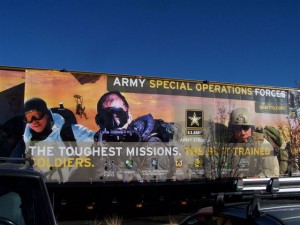
They stood before us, this beautiful, young couple. He had just returned home from a tour in Afghanistan, his second time away. They had many things they could have done that would have been much more fun than taking time to visit with us.
She was a student in my fall semester course at the University. At the beginning of the new semester she let me know her husband would be returning home soon and she wanted Tony and me to meet him. Just the request was a humbled joy. Actually meeting them on that cool winter day even meant more.
During our short time together, we did not talk much about his experiences at war except to listen to a few short phrases indicating he had been in some difficult situations.
I didn’t mention that his wife had to take an “Incomplete” for the college course because she became seriously ill and spent several days in the hospital. Somehow, all of this was now unimportant. The only thing we noticed was how the two people standing before us just couldn’t stop smiling and giggling continually as they held hands, grateful to finally be together.
My goodness, this was truly the picture of humbled joy.
That same day we spoke with an army Special Forces warrant officer who was helping to show students on campus the various skills and equipment used in the military. The young man explained that he had been in the army for sixteen years, joining-up right after high school. Honestly, he didn’t look like he was that old; he smiled widely when I shared my observation with him.
He talked about how joining the military at age seventeen was the best thing he has ever done. The army, he noted, gave him direction, guidance, and supported his development as a confident adult. The interesting detail about our conversation was how much I learned in a short time about his confidence as career military person.
At the beginning of our chat I asked how many times he had been overseas; five – six times if you counted a stint in Romania. The duration of each tour was between three and eight months depending on the mission. During several of his assignments he experienced the reality of war, including several casualties within his unit.
Yet, in spite of the stress, he seemed to be coping with the emotional and physical side effects of combat pretty well. It was challenging, he noted, to reintegrate into “normal” life on each return home, but the army gave him plenty of support and time to decompress.
He pointed out that on several occasions he was given a lengthy mental survey of over 115 items which sometimes highlighted his PTSD tendencies. Nevertheless, because he was career army, his adjustment process appeared to be faster and more comprehensive than veterans who left the service shortly after returning from battle. There does seem to be some significant benefits for the men/women who are in the military long term.
Perhaps being in a community of individuals who have experienced similar battle conditions helps the healing and understanding process. Being around other soldiers who can identify with the pain of combat; others who quietly appreciate the sacrifice of serving our country may lessen the feelings of emotional trauma of being alone in a world where most people haven’t experienced war. This, by itself, would be an immense relief because one wouldn’t have to pretend everything is OK when it isn’t. You wouldn’t have to go through each day feeling lost and alone because there would be a band of brothers surrounding you with knowledgeable support. At any rate, this young soldier certainly gave me some things to think about.
Humbled Joy, invisible, yet real. Thank you.
Jan
26
HIDDEN IN PLAIN SIGHT
Filed Under Combat PTSD, Life, Peace, PTSD, TBI & PTSD, Tears of a Warrior, Trauma, War, Wisdom | Comments Off on HIDDEN IN PLAIN SIGHT
by Janet J. Seahorn, Ph.D
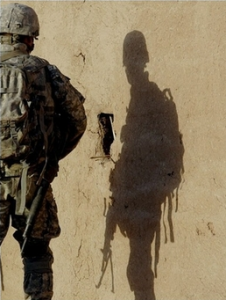
There is a phrase that one hears every now and then, Hidden in Plain Sight. Four simple words that eloquently reveal the complexity of the impact of trauma on one’s mind, heart, and soul. We see the person; we look at the eyes, the body language, the being’s form. The suffering is present in plain sight for all to witness. Yet, few do, lacking the keen observational heart skills required to notice anguish.
There are days I wish I didn’t see it – the faces of children battered by abuse and neglect; the adolescent’s depressive absorption into the ugly world of alcohol and drugs, and the veiled, but ever present ghosts of veterans, young and old carrying their memories of war. They haunt me as the world moves around their pain because it is hidden in plain sight.
Much like ‘Don’t Ask, Don’t Tell’, we are a nation that prefers to maintain our equilibrium at all cost. We tend to be uncomfortable with sorrow even when it stands knocking at our front door asking only for recognition and a bit of compassion.
We say we are a nation of empathy, yet often dismiss the humanity that exists in every person, especially those with whom we don’t agree. We argue we are intelligent, proficient thinkers, yet fight rigorously to disqualify any information that does not align with our personal paradigms/beliefs, whether true or misleading, without accurate evidence or data.
The answers to our current and future problems are available, but for too many they are hidden in plain sight. It will take incredible courage to look into our own minds and hearts searching for what is right and true. It will take courage and honest self-reflection to heal the hidden wounds of the wounded, but it can be done. What lies before us does not need to consume us with fear or apprehension. When confronted, trauma and pain can be overcome and no longer hidden or carried alone.
Light and sunshine are incredible healers.
Dec
22
SIMPLE BLESSING
Filed Under American Patriotism, Christmas, Giving, Joy Challenge, Life, Love, Tears of a Warrior | Comments Off on SIMPLE BLESSING
by Janet & Tony Seahorn

It is almost Christmas, a few days left until we celebrate the special event that people around the world have been doing for centuries. Some of us know this occasion as the birth of Jesus. Some call it the “thank goodness the shopping is over season”. And some simply hope the day passes as quickly as possible, overwhelmed by the season of consumerism.
Weeks ago we put out to our readers an opportunity to do something for themselves and others. To do something that would calm the spirit, or an act that would make a difference for someone else. We promised to share a few comments from our readers. I learned something from this experience. Veterans fight courageously, suffer silently, and strive for goodness every day. Here are a few we received.
One veteran’s wife wrote that her husband’s close friend had suffered a serious accident and has been in a coma in the ICU burn unit since mid November. Her husband and several other Vietnam Vets have taken turns twice a week spending the night at the hospital to relieve the wife and family. They watch as their friend “continues to fight ‘awareness’, flailing arms, legs, head, and not opening eyes or focusing. We can only imagine what is going on inside his head, the thoughts, flashbacks of Nam, the unwillingness to come to”, she recounts. Their involvedness has caused her husband and the others to have their own ghosts emerge – burn centers and trauma is a trigger to their days in Nam. Now they also take time to reflect on their blessing.
My brother John wrote: Let us start that list with our name at the top because if one cannot make themselves happy first, then how can we make anyone else happy. Second on the list has to be my best friend and companion Wyatt, my lab retriever. A prayer John uses every morning is “GOD HELP ME WALK WORTHILY THIS DAY SO THAT WHEN I LIE DOWN AT NIGHT I WILL NOT BE ASHAMED”. Then I thank HIM every night for everything that happened that day.
Others discussed how they had written a letter to a family member. Some of the letters were sent to tell a particular person how much his/her presence in life has meant. How by simply being present provided a sense of belonging and safety. Others wrote to ask for another chance, a chance for redemption, a chance to help the estranged person understand the long and difficult journey the writer has endured. Perhaps, after years of alienation, there will be forgiveness, compassion, and a better understanding of each individual’s existence. Possibly a miracle may happen and relationships may begin to heal. At any rate, it is more important that the effort was made.
The last one we will share tells of how a veteran and his wife were in a grocery store when they noticed two nuns shopping. The nuns would pick up an article, look at the price tag, then put it back on the shelf. Obviously, he writes, they could not afford much. As the man was checking out, he kept his eyes on the nuns. When their bill came up, he walked over and told the cashier he was paying for their items. Needless to say, the ladies were both surprised and quite grateful. He is now a part of their prayers. What was most important, he writes,
“At the end of the day I took the challenge and went out with my wife and helped somebody.
Taking the initiative to help others made me feel good about myself”.
Thank you again for sharing your stories. We hope that your season has been healthier and happier. We know for certain each of you reading this Christmas message has made a difference for others. You are simply a blessing for many, and you deserve an abundance of Simple Blessings.
Dec
9
DO YOU SEE WHAT I SEE
Filed Under Christmas, Combat PTSD, Life, Love, Peace, Tears of a Warrior | Comments Off on DO YOU SEE WHAT I SEE
by Janet J. Seahorn

A favorite Christmas carol asks the questions, “Do You See What I See”? “Do you hear what I hear?” “Do you know what I know?” During this holiday season, where many do not feel so holy; where many do not hear the sounds of joy that carols bring and angels sing; where many have yet to believe that good still exists, perhaps there is a message of gentleness if we are strong enough to trust.
Yes, I realize I am an optimist. Truly, it is one of my best qualities, besides a distorted sense of humor. There would be no “today” for me if these gifts were not part of my being. I am pretty certain I would have given up a long time ago for that choice certainly seemed easier. Yet, I’ve always known giving up wasn’t an option or a model I wanted to give others, especially my sons.
So, what do you see? In this challenging world of war, political disgust, and self-centeredness there are abundant examples of crap. But look around. Beauty is, also, everywhere – in the face of an innocent child, in the brilliance of holiday lights; in the fresh whiteness of snow… it exists if we look. On my refrigerator I have a post-it-note that says, “Focus on the possibilities, not the limitations”. It is life-saving advice.
Next, what do you hear? Undoubtedly I hear the weeping of those in pain both physical and mental. Those who have experienced inconceivable loss. Those who live with the memories of combat past and present. Those who are challenged by sickness. Physical aches are difficult, but emotional wounds are far more exhausting, for emotional pains are the ones others cannot see or hear. These are the silent screams of the soul, and they demand a great deal more stamina. Often these cries seem to overpower the humanity of our being. Such times will demand we listen for what is decent and soothing; a breeze rustling in the leafless trees, a favorite song, a small child giggling over a ringing silver bell, or the quiet gaze of love that says more loudly than any words… we are cared for more than we can imagine.
What do you believe? Do you believe in the seen or what is unseen? Believing is a choice. As a scientist I rely on hard, quantifiable data to answer research questions. However, the world’s most noteworthy gifts cannot be counted or even proven. Gifts such as goodness, love, and miracles are beyond the “proofs” of men, yet they exist. One cannot measure honesty; he cannot measure wonder, nor is he capable of determining the reality of love. Yet, these exist. These are the staples of our days. They allow us to continue living in spite of our frustrations and grief. They are more powerful than any pill, any counseling program, or any doubts.
As you move through your sometimes difficult days, focus on the good things you see; listen for what soothes your heart; believe in your personal power and the vast energies of good which are still present in our lives. And believe, “what is needed is on its way, right now”!
Look, listen, Believe.
Nov
23
Humility & Bravery Visible
Filed Under Combat PTSD, Life, PTSD, PTSD treatment, Tears of a Warrior, Treating PTSD, War | 2 Comments
by Janet J. Seahorn, Ph.D
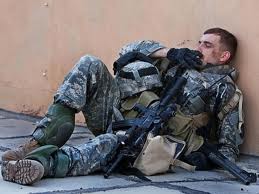
The day was wet and overcast.
Upon arriving at the VA Hospital in Denver, we noticed how many patients seemed to be waiting for a bus or a taxi. Tony didn’t appear overly eager to walk into the building. Just looking at the entrance from the outside made him nervous. Walking inside was even worse. Almost forty years ago, this was the place he went to get help for the nightmares and panic attacks he was experiencing after returning from Vietnam. A young therapist at the time, untrained and unskilled in working with military personnel thoughtlessly told him to be grateful he made it home, and get on with his life. For thirty years, Tony never went back there… or anywhere else for assistance.
Thank goodness we now have a verifiable diagnosis of these frightening memories; it is PTSD, and veteran centers across America are far more proficient in caring and supporting our wounded troops. Nevertheless, Tony had not been back to the Denver VA Hospital until Monday. We were going to talk with troops in the PTSD Unit of the hospital. This is a seven week program where vets get intensive counseling and treatment for their combat traumas. Today there are nineteen men attending the afternoon discussion. Humility can’t quite describe what we feel when we do such meetings.
The majority of the vets were from the Vietnam era with the remaining members from Iraq and Afghanistan. I am pretty sure most people have little understanding of how much suffering each patient has survived; years of torment and silent screams. Each face revealed a unique map of torment. It appeared that every wrinkle held its own story, its own remembrance. Yet, it was the younger warriors who made the most emotional impact. Perhaps this was because they reminded us of our sons. Or perhaps, we were too familiar with the pain they were experiencing and the long journey still ahead. Youthful faces were not yet lined with creases, though their eyes held an even deeper look of anguish. Yesterday’s combat field was not that far from today’s reality. Time had not yet put any distance from the rawness of war. Where several Vietnam vets were willing to talk, the young fighters stayed silent.
At the end of the afternoon, one young marine told me how difficult it was for his mother to understand what was happening to him. He talked about how she just kept saying, “Why don’t you just get better? Why aren’t you back to your old self? You weren’t wounded, what is the matter with you?” and then he said sadly, “she told me, why can’t you just take a pill and be OK?” Then he quietly stated, “I’m trying’ I’m really trying, but I just can’t seem to forget, no matter how hard I try.”
It was heartbreaking to watch him describe his situation. First he endured the many horrors of combat. When he came home, he had to endure the unawareness of the “ordinary” people.
Next, there was the tall, thin youth who sat shifting in his chair seeking a more comfortable position. His back pain was obvious, especially when he cautiously walked bracing his weight with his cane. The sweetest, shyest smile spread over his face as he approached. What he requested was an extra copy of our book, Tears of a Warrior. He wanted to send it to his wife, hoping she might read it before he returned home from the hospital. Perhaps she would gain a better understanding of his condition. Perhaps, by understanding, she would be able to bear the years ahead. Perhaps together they might make it though the dark times still to be faced.
More than ever, I am touched by the courage the young and the old veterans demonstrate. A valor that leads them forwarded searching for a small bit of peace. By making that huge leap of faith to enter this seven week program, they lay bare their demons, hoping by exposure to the light these may leave, or at least become less frightening. For most, I believe this will be true.
Like in combat, sometimes to survive, one must rush towards the enemy fighting with every ounce of power he/she possesses. Healing requires that same force of power – rushing towards the demons, lets them know you no longer will run from them. When the hiding ends the healing begins.
Have a healthy and Happy Thanksgiving.
Nov
2
THE EYES OF TRAUMA
Filed Under Civilian life, Combat PTSD, Life, Tears of a Warrior, Trauma, War, Wisdom | Comments Off on THE EYES OF TRAUMA
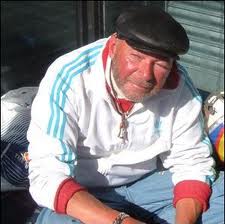
A face conceals many things through silent smiles and quiet words. Yet eyes speak silence louder, clearer than any verbal language. The mouth can easily fake joy, and talk can be nothing more than convincing noise. But the eyes, the eyes can’t fake unfelt laughter or peace. The eyes tell their own story. A story that sometimes screams of sadness; a story that carries the pain of guilt and desperation; a story burdened by trauma inflicted by war, abuse, or neglect.
Perhaps this is why few people are strong enough to stare into another’s eyes without looking away. When doing so we are really checking for evidence that what is said matches what is unsaid. Only eyes can confirm such a truth. We listen more fully, not just with our ears, but with our eyes. Deep listening is what many psychologists such as Daniel Siegel refer to as “feeling felt”. Feeling Felt tells the story teller that he/she matters. That his/her experiences are valued and honored.
Why would I write a blog about eyes? Simple, many, many beings are walking through our world with silent screams. No one seems to notice or take time to pay attention. Few things in life are harder for a human being to sustain than being invisible to others. Homeless people understand, abused children understand, and traumatized vets understand.
Next time you see someone whom you suspect may need to be seen, be brave enough and care enough to listen to what the eyes are saying. It is a humbling tribute that a person has placed his/her trust in your willingness to be with them, even for only a small amount of time.
Oct
12
Dang – These Stats Are Amazing
Filed Under Black Lions, Combat PTSD, Life, PTSD, TBI & PTSD, Tears of a Warrior, War | Comments Off on Dang – These Stats Are Amazing
by Janet J. Seahorn, Ph.D.
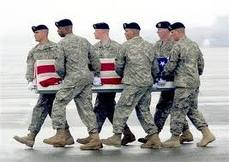
As you might imagine, we have been doing research and accumulating multiple types of data for well over ten years. Much has been on PTSD along with statistics on various numbers of vets who served in different wars, as well as their injury and death counts.
Over the last two weeks we have had numerous individuals send us a variety of articles and information on the Vietnam War. Perhaps the most startling was a number that I checked out through several sites; it was a number that claimed only 1/3 of veterans who served in Vietnam are still alive. This number was part of a 2000 census count, so I can only assume the number is far lower ten years later. The actually statement was “Of the 2,709,918 Americans who served in Vietnam, less than 850,000 are estimated to be alive today”.
Yikes. This is a number neither Tony nor I ever expected. Perhaps we don’t want to admit that we are growing that much older. Or perhaps the numbers may show an underlying concern with the health of Vietnam vets who endured massive amounts of toxic chemicals while serving in the war zone. At any rate, the small number of Vietnam vets still living is a real worry.
Another statistic that we have seen is that of the 9,087,000 military personnel who served from August 5, 1964 – May 7, 1975, only 2,709,918 actually served in Vietnam. Of those who were in Vietnam, only around “40-50% either fought in combat, provided close support or were at least fairly regularly exposed to enemy attack” (Bob Beavis, 2010).
And most alarming in a 1995 census around 9.5 million individuals falsely claimed that they had served in Vietnam when they had not; in the 2000 census almost 14 million individuals falsely made such a claim. Yikes, no wonder the Veteran’s Administration is having a harder time trying to identify who did and did not serve when there are so many “false” claimants in America. As my grandmother would say, “Shame, shame, on all of them”.
Last, and this I find very interesting given the amount of press that has been given to the number of Vietnam vets who were supposedly alcoholics, drug users, and homeless, according to various vet sources (VFW Magazine, the Public Information Office…) there was/is no difference between those populations who served in Vietnam and those who did not.
Also, we often hear about how many Vietnam vets ended up in prison… simply not true. Vietnam vets were less likely to be in or served time in prison – only ½ of one percent (Bob Beavis). Over 82% of Vietnam veterans seemed to have made a pretty successful transition to civilian life in spite of dealing with severe injuries and PTSD.
So congratulations all you Vietnam vets; you have lived a truly exceptional life, served your country with honor, and had the incredible strength and internal courage to continue to live life with high principles and personal pride.

